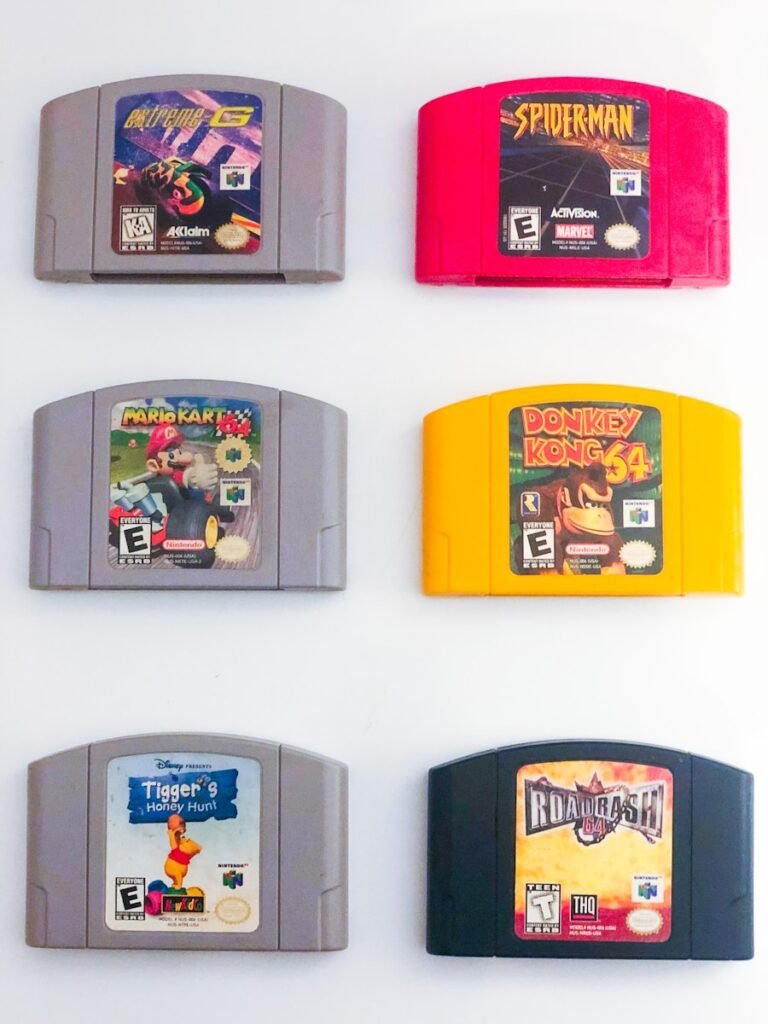Now Reading: The Ethics of Loot Boxes: A Controversial Debate
-
01
The Ethics of Loot Boxes: A Controversial Debate
The Ethics of Loot Boxes: A Controversial Debate

In the ever-evolving landscape of video gaming, loot boxes have emerged as a significant and often controversial feature. These virtual containers, which players can purchase or earn through gameplay, typically contain random in-game items, ranging from cosmetic enhancements to powerful gear.
As a player myself, I have experienced the rush of anticipation that comes with unboxing a loot box, wondering what treasures might lie within. This mechanic has become a staple in many popular games, from mobile apps to AAA titles, and has sparked a myriad of discussions about its implications. The rise of loot boxes has coincided with the broader trend of monetization in gaming, where developers seek new revenue streams beyond the traditional upfront purchase model.
While some players appreciate the opportunity to enhance their gaming experience through these purchases, others express concern over the potential for exploitation. As I delve deeper into this topic, I find myself grappling with the dual nature of loot boxes: they can be both a source of enjoyment and a point of contention. Understanding the complexities surrounding loot boxes requires examining not only their mechanics but also the broader implications they have on players and the gaming industry as a whole.
Key Takeaways
- Loot boxes are virtual items in video games that can be purchased with real or in-game currency and contain random rewards.
- The debate surrounding loot boxes centers on whether they constitute gambling and their potential impact on players, especially children.
- Loot boxes have been linked to addictive behaviors, financial harm, and negative psychological effects on players.
- Legal and regulatory perspectives on loot boxes vary by country, with some jurisdictions considering them a form of gambling and others not.
- Ethical concerns surrounding loot boxes include their potential to exploit vulnerable players and create unfair advantages for those who can afford to purchase them.
The Debate Surrounding Loot Boxes
The debate surrounding loot boxes is multifaceted, encompassing various perspectives from players, developers, and regulators. On one hand, proponents argue that loot boxes enhance the gaming experience by providing players with additional content and opportunities for customization. They contend that these features can foster engagement and prolong the lifespan of a game.
As someone who enjoys personalizing my gaming experience, I can appreciate the appeal of acquiring unique items that set my character apart from others. However, this perspective often clashes with concerns about fairness and accessibility. Critics of loot boxes raise valid points regarding their resemblance to gambling, particularly when they involve real-money transactions.
The randomness inherent in loot boxes can lead to frustration and disappointment, especially when players invest significant amounts of money without receiving desirable items. I have witnessed friends become disheartened after spending money on loot boxes only to receive duplicates or items they did not want. This aspect of chance raises ethical questions about whether it is appropriate to incorporate such mechanics into games that are primarily designed for entertainment.
The debate continues to evolve as more voices join the conversation, each contributing unique insights into the implications of loot boxes in modern gaming.
The Impact of Loot Boxes on Players

The impact of addiction loot boxes on players is profound and varied. For some, they represent an exciting opportunity to enhance their gaming experience and showcase their achievements. The thrill of opening a loot box can create memorable moments, fostering a sense of community among players who share their finds and experiences.
I have often found myself discussing rare items with friends, bonding over our shared excitement and the stories behind our acquisitions. This social aspect can enhance the overall enjoyment of a game, creating a sense of camaraderie among players. Conversely, there is a darker side to the impact of loot boxes that cannot be ignored.
For many players, particularly younger ones, the allure of loot boxes can lead to compulsive spending behaviors. The mechanics are designed to encourage repeated purchases, often leading individuals to spend more than they initially intended. I have seen firsthand how this can spiral out of control, with players feeling pressured to keep up with their peers or to obtain that elusive item.
This phenomenon raises concerns about addiction and financial responsibility, prompting discussions about the need for safeguards to protect vulnerable players from potential exploitation.
The Legal and Regulatory Perspective on Loot Boxes
As the conversation around loot boxes has intensified, so too has scrutiny from legal and regulatory bodies worldwide. Different countries have taken varied approaches to address the concerns surrounding loot boxes, with some classifying them as forms of gambling while others do not. In my exploration of this topic, I have come across instances where governments have implemented regulations requiring transparency in loot box mechanics or even banning them altogether in certain contexts.
These legal frameworks aim to protect consumers and ensure fair practices within the gaming industry. In regions where loot boxes are classified as gambling, developers may be required to implement age restrictions or provide clear disclosures about odds and probabilities associated with obtaining specific items. This regulatory landscape is continually evolving as lawmakers grapple with the implications of digital economies and virtual goods.
However, I also recognize that navigating these regulations can be complex for developers who must balance creativity with compliance.
Ethical Concerns Surrounding Loot Boxes
The ethical concerns surrounding loot boxes are deeply intertwined with issues of fairness, transparency, and player welfare. One major ethical dilemma is whether it is appropriate for game developers to monetize chance-based mechanics in a medium primarily designed for entertainment. As I reflect on my own experiences with loot boxes, I cannot help but question whether it is ethical to introduce elements that may exploit players’ desires for achievement and status within a game.
Moreover, the lack of transparency regarding odds and item availability raises further ethical questions. Many players may not fully understand the risks associated with purchasing loot boxes or may be unaware of how likely they are to receive desirable items. This lack of clarity can lead to feelings of betrayal when expectations are not met.
As someone who values honesty in gaming experiences, I believe that developers have a responsibility to provide clear information about what players can expect when engaging with loot boxes. This transparency could help mitigate some ethical concerns while fostering trust between developers and their communities.
Industry Practices and Accountability

In response to growing concerns about loot boxes, many companies within the gaming industry have begun to adopt more responsible practices. Some developers have taken proactive steps to ensure that their loot box systems are fair and transparent by disclosing odds and probabilities associated with item drops. As I observe these changes, I feel encouraged by the industry’s willingness to adapt in response to player feedback and regulatory pressures.
However, accountability remains a critical issue within the industry. While some companies have embraced ethical practices, others continue to prioritize profit over player welfare. This disparity raises questions about whether self-regulation is sufficient or if more stringent oversight is necessary.
As a player who cares about the integrity of the gaming experience, I believe that industry-wide standards should be established to ensure that all developers adhere to responsible practices regarding loot boxes. This could help create a more equitable environment for players while fostering trust between consumers and companies.
Player Advocacy and Consumer Rights
As discussions around loot boxes continue to evolve, player advocacy groups have emerged as vital voices in advocating for consumer rights within the gaming industry. These organizations work tirelessly to raise awareness about the potential harms associated with loot boxes and push for greater accountability from developers. I find it inspiring to see players come together to advocate for change, highlighting the importance of community engagement in shaping industry practices.
Player advocacy efforts often focus on promoting transparency and fairness in loot box mechanics while pushing for regulations that protect vulnerable populations from potential exploitation. As someone who values consumer rights, I appreciate these initiatives aimed at ensuring that players are informed about their choices and empowered to make decisions that align with their values. By amplifying player voices and holding companies accountable, advocacy groups play a crucial role in shaping the future of gaming.
The Future of Loot Boxes and Ethical Considerations
Looking ahead, the future of loot boxes remains uncertain as the gaming industry grapples with ongoing debates about ethics and accountability. As developers continue to innovate and explore new monetization strategies, it is essential that they prioritize player welfare and consider the long-term implications of their choices. I believe that finding a balance between profitability and ethical responsibility will be crucial in shaping the future landscape of gaming.
As players become more informed about the potential risks associated with loot boxes, there may be increased demand for transparency and fairness in game design. Developers who prioritize ethical considerations may find themselves better positioned to build lasting relationships with their communities while fostering trust among players. Ultimately, as I reflect on my own experiences with loot boxes, I hope for a future where gaming remains an enjoyable and inclusive space—one where players can engage without fear of exploitation or undue pressure.
In conclusion, while loot boxes offer exciting opportunities for customization and engagement within games, they also raise significant ethical concerns that warrant careful consideration. As discussions continue around their impact on players and the industry as a whole, it is essential for all stakeholders—players, developers, regulators—to engage in meaningful dialogue aimed at fostering a healthier gaming environment for everyone involved.
There is a lot of debate surrounding the ethics of loot boxes in the gaming industry. Some argue that they are a form of gambling and can lead to addictive behaviors, while others see them as a harmless way to enhance gameplay. For those interested in game customization and crafting, this crafting guide may provide some insight into how loot boxes can impact the overall gaming experience. Additionally, for gamers looking to unleash their creativity and personalize their gaming experience, this list of top games for modding may offer some alternative ways to enhance gameplay without relying on loot boxes. As the debate continues, it is important for players to consider the ethical implications of supporting games that heavily rely on loot box mechanics.
FAQs
What are loot boxes?
Loot boxes are virtual items in video games that can be purchased with real money and contain random in-game rewards, such as cosmetic items or gameplay enhancements.
Are loot boxes considered a form of gambling?
The debate over whether loot boxes constitute gambling is ongoing. Some argue that the random nature of loot box rewards and the use of real money to purchase them aligns with the definition of gambling, while others argue that there are key differences between loot boxes and traditional forms of gambling.
What are the ethical concerns surrounding loot boxes?
Ethical concerns about loot boxes include their potential to exploit vulnerable individuals, particularly minors, by encouraging excessive spending and creating a gambling-like experience. There are also concerns about the lack of transparency regarding the odds of receiving specific items from loot boxes.
How do different countries regulate loot boxes?
Regulation of loot boxes varies by country. Some countries have implemented strict regulations or outright bans on certain types of loot boxes, while others have taken a more hands-off approach. The legal and regulatory landscape surrounding loot boxes continues to evolve.
What are some proposed solutions to address the ethical concerns of loot boxes?
Proposed solutions to address the ethical concerns of loot boxes include implementing age restrictions on their purchase, increasing transparency about the odds of receiving specific items, and exploring alternative monetization models for video games. Additionally, some advocate for stricter regulation of loot boxes to align with gambling laws.

























